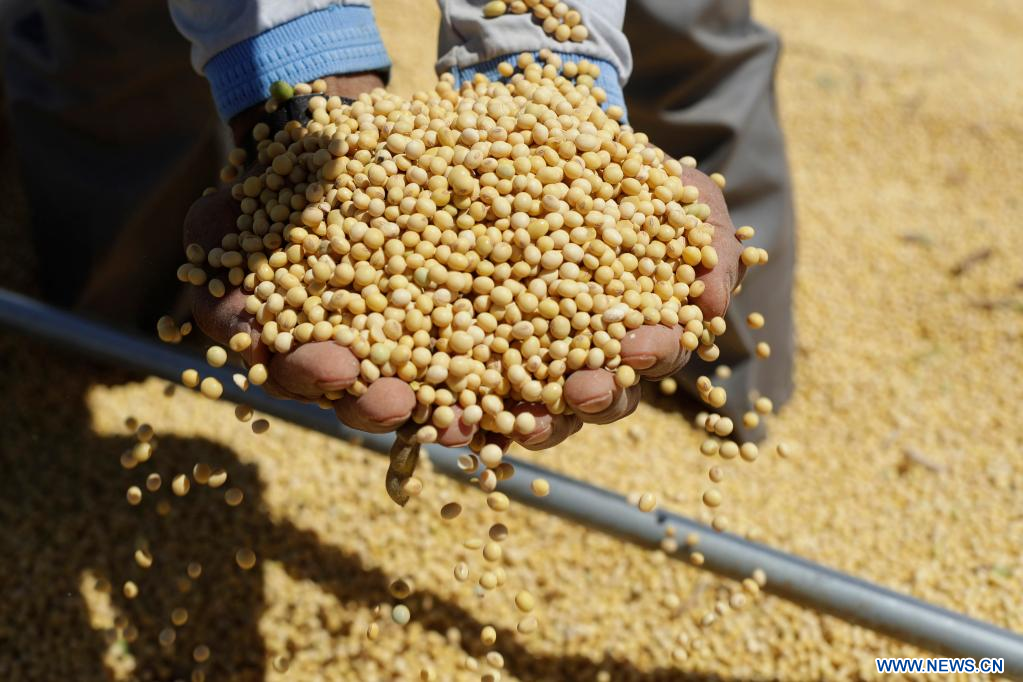
A cargo ship that brought deforestation-free soy from Brazil docked at the Port of Tianjin, in northern China, after more than a month of travel, in May this year. The import of deforestation-free Brazilian soybeans to China demonstrates to the global market the determination of both countries to strengthen cooperation in sustainable agriculture.
Deforestation-free soy means there is no deforestation or destruction of vegetation on the land where the soy is grown. In 2021, the 26th Conference of the Parties to the United Nations Framework Convention on Climate Change (UNFCCC) adopted the Glasgow Leaders’ Declaration on Forests and Land Use, committing to halt and reverse forest loss and land degradation until 2030. China and Brazil, among others, signed the declaration.
At the 6th China International Import Expo (CIIE) last year, China’s largest food trader COFCO and Chinese dairy giant Inner Mongolia Mengniu Dairy signed a cooperation agreement on the procurement of Brazilian soybeans. This was a significant milestone, sending a positive signal from China to the global commodities market, commented the Tropical Forest Alliance of the World Economic Forum.
Promoting the green and low-carbon transformation of global agriculture is an essential action that needs to be taken immediately, said Dong Wei, CEO of COFCO International, who is well aware of his social responsibility for global sustainable development.
To contain deforestation in soy production in Brazil, COFCO International has carried out land monitoring on some Brazilian farms since 2019, designed risk maps and established a “soy traceability system” based on information provided by suppliers, in addition to provide relevant training to local farmers. Currently, COFCO International has achieved full traceability of direct soybean acquisition in Brazil. The company also plans to establish a deforestation-free soy supply chain in the Amazon rainforest, Cerrado grasslands and Gran Chaco regions of Latin America by 2025.
Source: https://www.chinahoje.net/china-e-brasil-fortalecem-cooperacao-em-agricultura-sustentavel/

